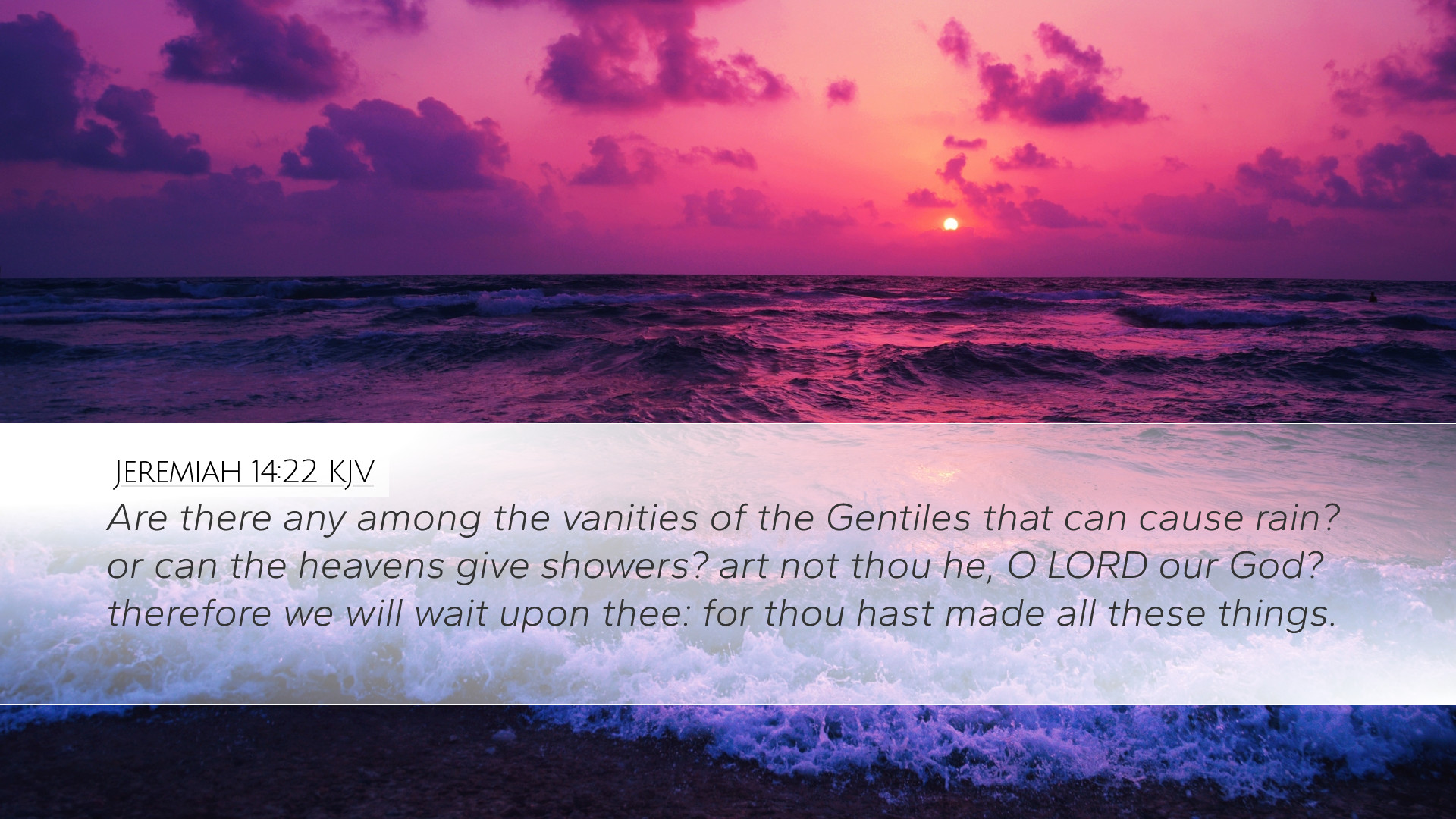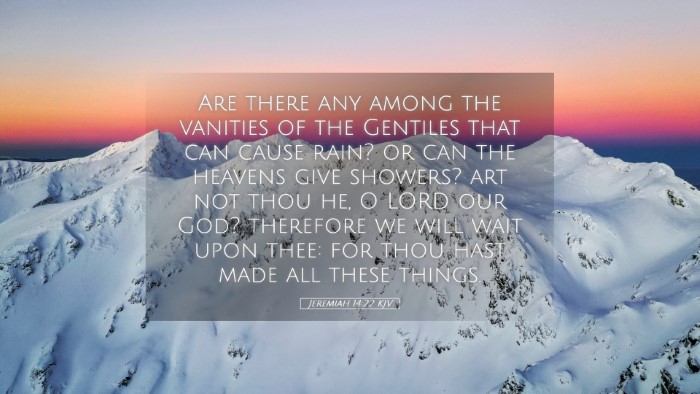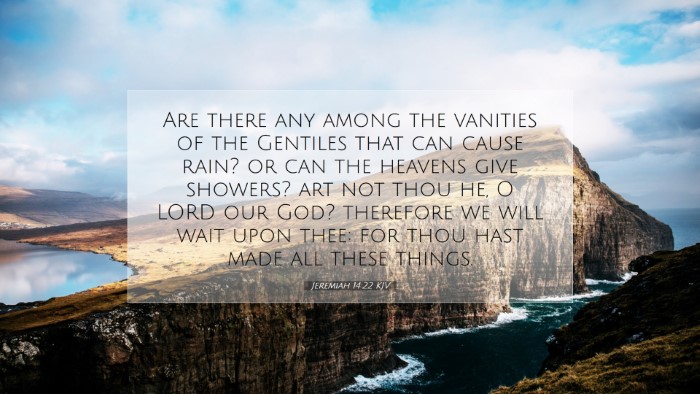Bible Commentary on Jeremiah 14:22
Jeremiah 14:22 states:
"Are there any among the vanities of the Gentiles that can cause rain? or can the heavens give showers? art not thou he, O Lord our God? therefore we will wait upon thee: for thou hast made all these things."
Introduction
This verse encapsulates the profound recognition of God’s sovereignty over creation, particularly in the context of natural phenomena such as rain. In this commentary, we will explore insights drawn from notable public domain commentaries including Matthew Henry, Albert Barnes, and Adam Clarke. Their reflections will shed light on the theological and practical implications of this verse for pastors, students, theologians, and Bible scholars.
Contextual Background
The Book of Jeremiah is a prophetic work that addresses the turbulent circumstances of Judah leading up to the Babylonian exile. Chapter 14 focuses specifically on a drought affecting the land, which serves as both a physical calamity and a spiritual metaphor. The people of Judah are in a desperate situation, turning to idols and neglecting their covenant relationship with God.
The Vanity of Idols
Henry emphasizes the impotence of idols and the futility of relying on them during hardships. The rhetorical question posed in the verse underscores that these "vanities of the Gentiles" hold no power to provide what is essential—namely, rain:
- Hebrew Context: The term "vanities" refers not only to the concept of idols but also represents the empty promises that cannot fulfill real needs.
- Application: This part of the verse serves as a reminder to modern believers not to seek fulfillment or help from empty pursuits.
The Sovereignty of God
Turning to the second part of the verse, the acknowledgment of God as the sole provider is critical. Barnes points out the attributes of God that affirm His authority over creation:
- Creator: God made the heavens and the earth, thus holds dominion over all things.
- Provider: The act of waiting upon the Lord is an expression of trust in His providential care.
For theologians, this signifies a call to embrace the divine will in times of scarcity or drought, trusting in God's timing and wisdom.
The Call to Wait Upon the Lord
Lastly, the phrase "we will wait upon thee" emphasizes a posture of faith and expectation. Clarke elaborates that waiting is not passivity but an active and hopeful anticipation of God’s intervention:
- Faith in Action: Waiting implies prayer, seeking, and an active reliance on God’s promises.
- Spiritual Discipline: It invites believers to cultivate patience, reminding them that God's timing may differ from human expectations.
Theological Implications
This scripture highlights several theological themes important for pastoral teachings and scholarly discussions:
- The Nature of Worship: True worship is not found in the false promises of worldly powers but in a trusting relationship with the Creator.
- Divine Providence: Acknowledging God’s control over creation encourages believers to understand the trials as opportunities for deeper faith.
- Reliance on Prayer: The verse underlines the importance of prayerful dependence on God during crises.
Practical Applications
For pastors and theologians, this commentary offers not just insights but also practical applications for ministry:
- Encouraging Faith: Teach congregations the importance of redirecting their hope away from secular idols toward God.
- Cultivating a Culture of Prayer: Develop programs for prayer and waiting upon the Lord in community settings.
- Promoting Spiritual Growth: Help believers understand that trials often serve as catalysts for spiritual maturity.
Conclusion
Jeremiah 14:22 serves as a profound reminder to both ancient and modern readers of the futility of idolatry and the necessity of faith in God’s sovereign provision. The insights drawn from Matthew Henry, Albert Barnes, and Adam Clarke encourage a deepened understanding of waiting upon the Lord as an active and essential practice in the face of life's challenges. In a world where many seek security in transient things, this verse compels believers to realign their faith and expectations firmly in the Almighty God, the author and sustainer of all that exists.


